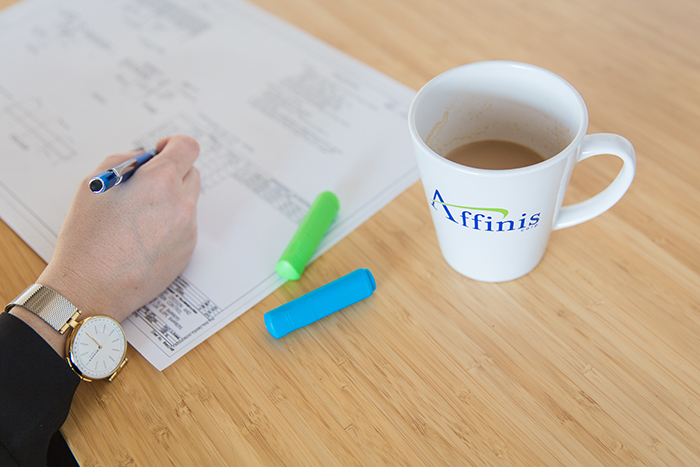EWeek Interviews with Our Team
Posted on Wednesday, February 19th, 2020 by Affinis CorpIn Firm News, tagged in Tags: eweek, nspe

Founded by the National Society of Professional Engineers (NSPE) in 1951, EWeek is dedicated to ensuring a diverse and well-educated future engineering workforce by increasing understanding of and interest in engineering and technology careers. In celebration, we asked PE’s on our team to share their favorite projects and the coolest problems they’ve solved over the course of their careers. Find those answers, as well as others, below.
What is your favorite project you’ve worked on at Affinis?
Linda Rottinghaus: It would be the I-470/Route 50 Interchange project
Chris Farney: My favorite project that I have worked on at Affinis is the Mill and Overlay project on 67th Street in Merriam. I grew up in Merriam, in a neighborhood just off 67th Street, so it was really interesting to work in an area that I had a lot of familiarity with. The project itself was relatively straightforward, but we ended up adding a pedestrian bridge over the creek, which turned out really well.
Maeve VanLandingham: My favorite has been the Overland Park 2020 Major Storm Repair Project. The project has seven unique sites, so I’ve learned a lot from the site diversity.
Jason Davis: I would say the L-385 levee system located in Riverside. I started from the beginning and was part of the project through construction and now post-construction. The levee project had all the engineering disciplines involved. Great seeing an $80M levee project from start to finish!
What is the coolest problem you’ve solved for a client?
Linda: Reconstructing the main street through an old downtown district while providing ADA access to all the buildings. The doors to the businesses were accessed by stairs, so the design incorporated ramps and retaining walls to elevate the sidewalk to the doors. We had to work around the old building foundations when excavating for the retaining walls.
Maeve: Getting to help solve flooding issues for a local nursing home was really rewarding.
What has been different about being an engineer than you expected?
Chris: When you are in school, it seems like engineering will be a lot of difficult math and lots of solving equations. In reality, quite a bit of my job is just problem solving. Trying to find solutions that solve the problem and work well for a city.
Maeve: The number of civil “specialties” a typical project involves is far more than I expected. Getting to coordinate with structural, geotechnical, traffic and other engineers to solve stormwater problems adds so much value to the design.
Jason: College doesn’t prepare you for the business side of engineering. It’s great for the technical, but the business aspects you learn through on the job training mostly.
Linda: That there is no simple project. Each one is totally different, and they all have small challenges that always have to be solved.
Which new trends or technology are you excited to integrate in future designs?
Maeve: I’m excited to integrate new erosion and sediment controls to our future designs. Having adaptive BMPs (Best Management Practices) in the design helps the consultant, client, and contractor execute the project if/when challenges arise during construction.
Jason: I would like to use more geophysical methods for subsurface investigations on my projects. The geophysical technology has improved quite a bit over the past few years. This information would be great for providing better or more information.